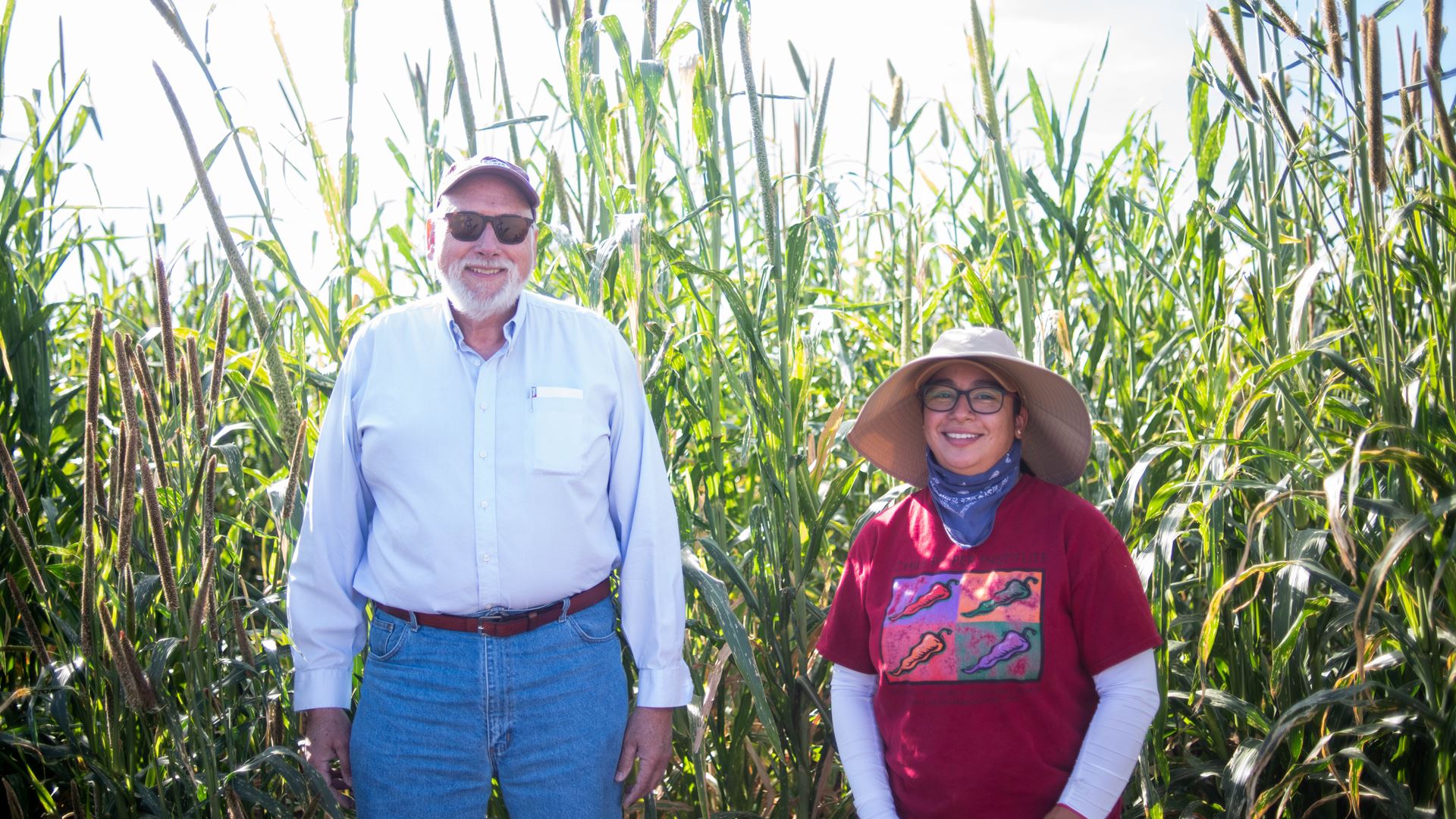Two New Mexico State University College of Agricultural, Consumer and Environmental Sciences research projects have been awarded funding from the National Institute of Food and Agriculture as part of its nearly $34 million investment to help boost organic farming and ranching.
NMSU was the only university to receive funding for two projects: the Expanding Organic Systems to Reduce Water Demand and Increase Agricultural Resilience in the Southwest project received $750,000; and the Bridging Traditional Agriculture and Climate-Adaptive Organic Agriculture in the Southwest project received $744,971.
The first project focuses on the challenge of water scarcity on agricultural resilience in the Southwest. The project is led by project director and New Mexico Water Resources Institute Director Sam Fernald, who is also a professor of watershed management in the NMSU Department of Animal and Range Sciences. Fernald is joined by co-project directors Connie Maxwell, NM WRRI postdoctoral researcher; Plant and Environmental Sciences Professor Ivette Guzman; Agricultural Economics and Agricultural Business Department Head Jay Lillywhite; Agricultural Science Center at Farmington Superintendent Kevin Lombard; and Associate Research Scientist Robert Heyduck.
“A central question of this work is if expanding organic and traditional systems can support small farms to achieve the water demand reductions needed for preserving cultivation across agricultural river valleys and realize overall agricultural resilience,” Maxwell said.
The team has found that organic systems could be critical for water resilience, but small farmers need additional knowledge and science-based tools. The project’s goals are to identify pathways to agricultural and water resilience for small farming communities in the Southwest, and develop an organic system-planning protocol and toolkit for effective strategies. The approach brings together field studies of drought-tolerant and high-value organic crops measuring yields and water demand, and integrated assessments of agricultural livelihoods with water budgets to identify combinations of strategies that can achieve resilient water and agriculture futures.
The second project, led by Lombard; Cropping Systems Research Program Director Richard Pratt; Cropping Systems, Irrigation Technology and Water Conservation Assistant Professor Koffi Djaman; Plant Pathology and Weed Science Professor Brian Schutte; and Agricultural Economics and Agricultural Business Extension Specialist Michael Patrick, works with collaborators such as the Rodale Institute, the Southwest Grain Collaborative, Colorado State University Extension, Pueblo Seed and Food Company, Dine Community College and individual growers in Colorado, Isleta Pueblo, the Navajo Nation, and the Mesilla Valley.
“Many small farmers in the southwestern United States do not have access to technologies or programs that address the growing scarcity of water for irrigation,” Pratt said. “Organic agriculture can increase system resiliency, but many small farmers in the Southwest are hesitant about pursuing organic certification.”
Pratt said the project addresses this hesitancy by exploring the commonalities between organic principles and traditional agricultural methods, and uses participatory research to identify cover crop species and blends that provide ecosystem services and contribute to farm income under limited irrigation.
“Our outreach program will enable farmers and a regional organic seed supplier to decide if they want to produce seeds of cover crops well suited for organic transition in the Southwest. Farmers and cooperators who wish to initiate organic transition will receive educational support and advising through the project,” Pratt said.
The project will also address cultural sensitivity and language barriers to increase knowledge of organic transition requirements, and promote awareness and knowledge of the benefits and limitations of the diverse cover crops in the Southwest.
For more information, visit https://www.nifa.usda.gov/.
-30-
CUTLINE: Richard Pratt, left, Cropping Systems Research Program director at New Mexico State University, and project coordinator Kimberly Rodriguez stand in front of a millet observation nursery located at the Student Research and Education Gardens on the NMSU main campus. Two projects led by NMSU researchers were awarded funding from the National Institute of Food and Agriculture to help boost organic farming. (NMSU photo by Josh Bachman)
A man and a woman standing in a field.
CUTLINE: New Mexico State University project coordinator Kimberly Rodriguez places a bag over a head of millet so that it will be projected, and a seed increase can be obtained for research purposes. (NMSU photo by Josh Bachman)
A woman placing a paper bag over a tall millet plant.

